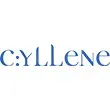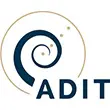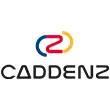
Hedge Fund Investor Barometer 2026
The Hedge Fund Investor Barometer 2026 compiles responses from 200+ professional investors, analysing perceived risks, regional opportunities and strategy...

supported companies1
dedicated professionals1
launch of the expertise

A high-value shareholder for partner companies
We build long-lasting, close relationships with our portfolio companies to drive progress and create value together.
Strategic positioning
As an active minority investor (board seats <50%), we provide genuine operational and strategic support. We can also take a majority stake as part of a consortium.
Targeted market segment
Investment tickets typically range from €20 to €60 million per growth capital or buyout deal, often in partnership with French or European entrepreneurial or family-owned companies.

Exclusive access to Amundi and Crédit Agricole’s business network |
Support in driving both external and organic growth |
Strong multisector experience in supporting growing SMEs and mid-cap companies |
Assistance in structuring companies to manage growth |
International reach leveraging Amundi’s presence in 35 countries |
Environmental, Social, and Governance (ESG) performance improvement |
An overview of the portfolio companies we have been supporting over the last years.

Creates, manages and exploits customer data, |

Software publisher for self-employed healthcare professionals |

Cybersecurity expert protecting companies from digital threats |

LMB offers fans and cooling solutions for aerospace, naval and military applications |

European leader in strategic intelligence and international support |

Connectivity experts, high-speed Internet services for companies and local authorities |
|

Innovator in telecoms, robust and sustainable mobile terminals for extreme use |
|

Independent non-life insurance broker for all |

Caddenz secures, signals and fits out worksites |

International bilingual boarding school in Maison-Laffitte |

French expert in private higher education apprenticeship |

French leader in precision logistics and delivery |

Offers holidays in eco-responsible campsites |

Leader in the healthcare sector, offers accommodation for dependent elderly people (nursing homes) |

Manages and supports property companies LFPI and Artemis |
An experienced, international and complementary management team.

Stanislas Cuny |

Claire Chabrier |

Julien Jaud |

Alexandre Denby-Wilkes |

Christophe Somaïni |

Frédéric Labia |

Laurence Henaff |

Pierre-Henri Carles |

Jean Karbouyan |

Romain Rouge |

Hiba Aourir |

Laetitia Berger |

Théo Quinsac |

Daphné Parant |
Viviane Gasparrini |
Stefano Messori |
Anna Serafini1 |
Vincent Fravel1 |
1. Supporting the investment team
As a responsible investor, we place Environmental, Social and Governance (ESG) criteria at the heart of our continuous commitment to progress.

SFDR Article 8
fund offering
80%
of the roadmaps under our control
5 stars
PRI rating2
2024 ESG Awards
by Private Equity Magazine
Discover the highlights of our actions as a Responsible Investor
To learn more about the governance, policies and strategies that guide the integration of ESG criteria in the management and investment policies of Amundi Alternative and Real Assets, please consult our latest publications:
1. Source : Amundi, figures as at 30/06/2025
2. Source: PRI Assessment Report 2025. The full report and the PRI Transparency Report can be found at the following link: Amundi PRI Documentation 2025.
This information is exclusively intended for “Professional” investors within the meaning Directive 2014/65/EU of the European Parliament and the Council of 15 Many 2014 on Markets in Financial Instruments (as amended) (MIFID II). It is not intended for the general public or for non-professional individual investors within the meaning of all local regulations, or for “US Persons”, as defined in the Securities and Exchange Commission’s “Regulation S” under the 1933 U.S. Securities Act. This non-contractual information does not under any circumstances constitute an offer to buy, a solicitation to sell, or advice to invest in financial instruments of Amundi or one of its affiliates (“Amundi”). Investing involves risks. The performance of the strategies is not guaranteed. Past performance does not predict future results. Investors may lose all or part of the capital originally invested. There is no guarantee that ESG considerations will enhance a strategy’s performance. The decision of investors to invest in the promoted strategies should take into account all characteristics of objectives of the strategies. All investors should seek professional advice prior to any investment decision, in order to determine the risks associated with the investment and its suitability. Amundi assumes no liability, either direct or indirect, resulting from the use of any of the information contained in this document, and shall not under any circumstances be held liable for any decisions taken on the basis of this information. This information may not be copied, reproduced, modified, translated or distributed, without the prior written approval of Amundi. This information is provided to you based on sources that Amundi considers to be reliable at the date of publication, and it may be modified at any time without prior notice.